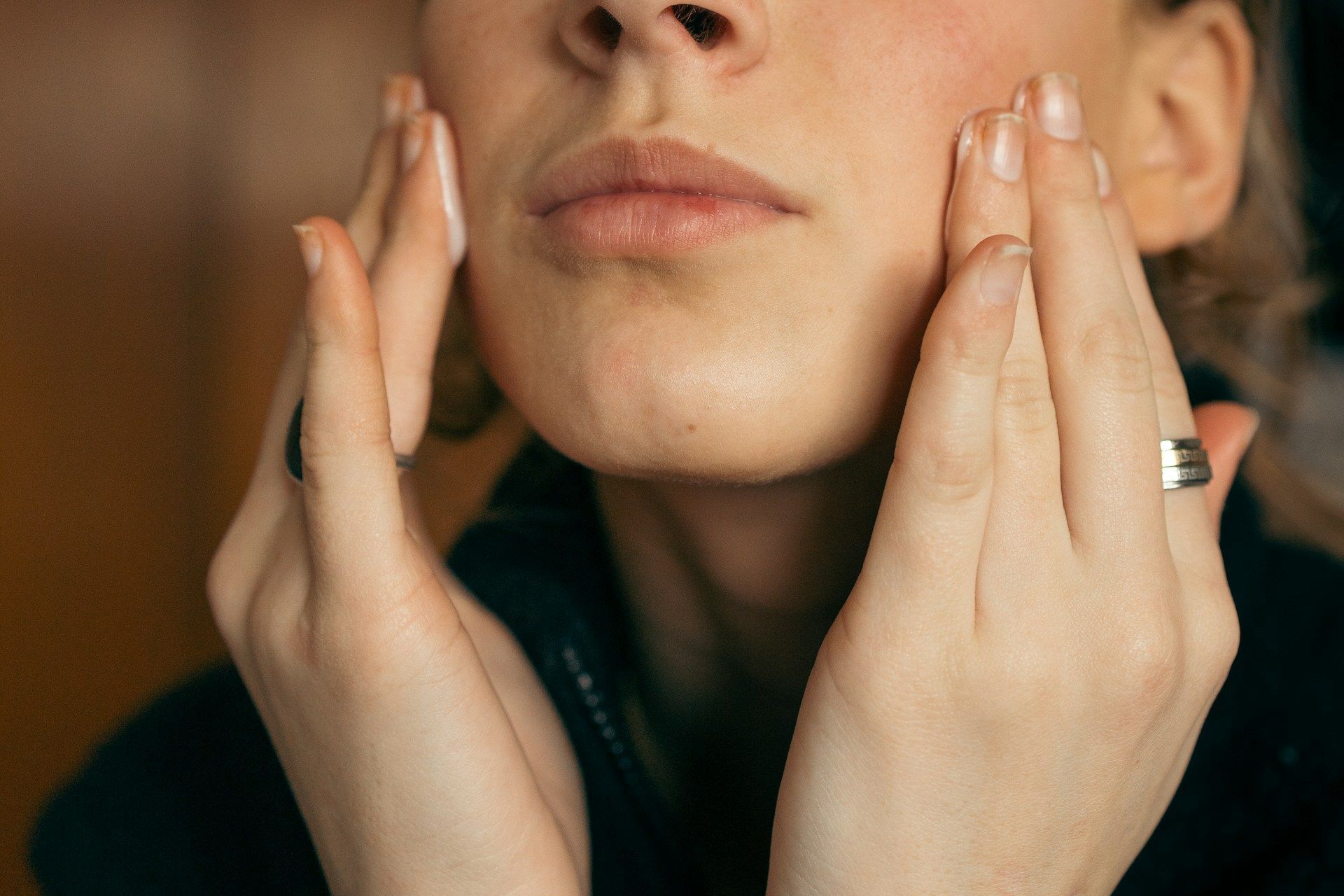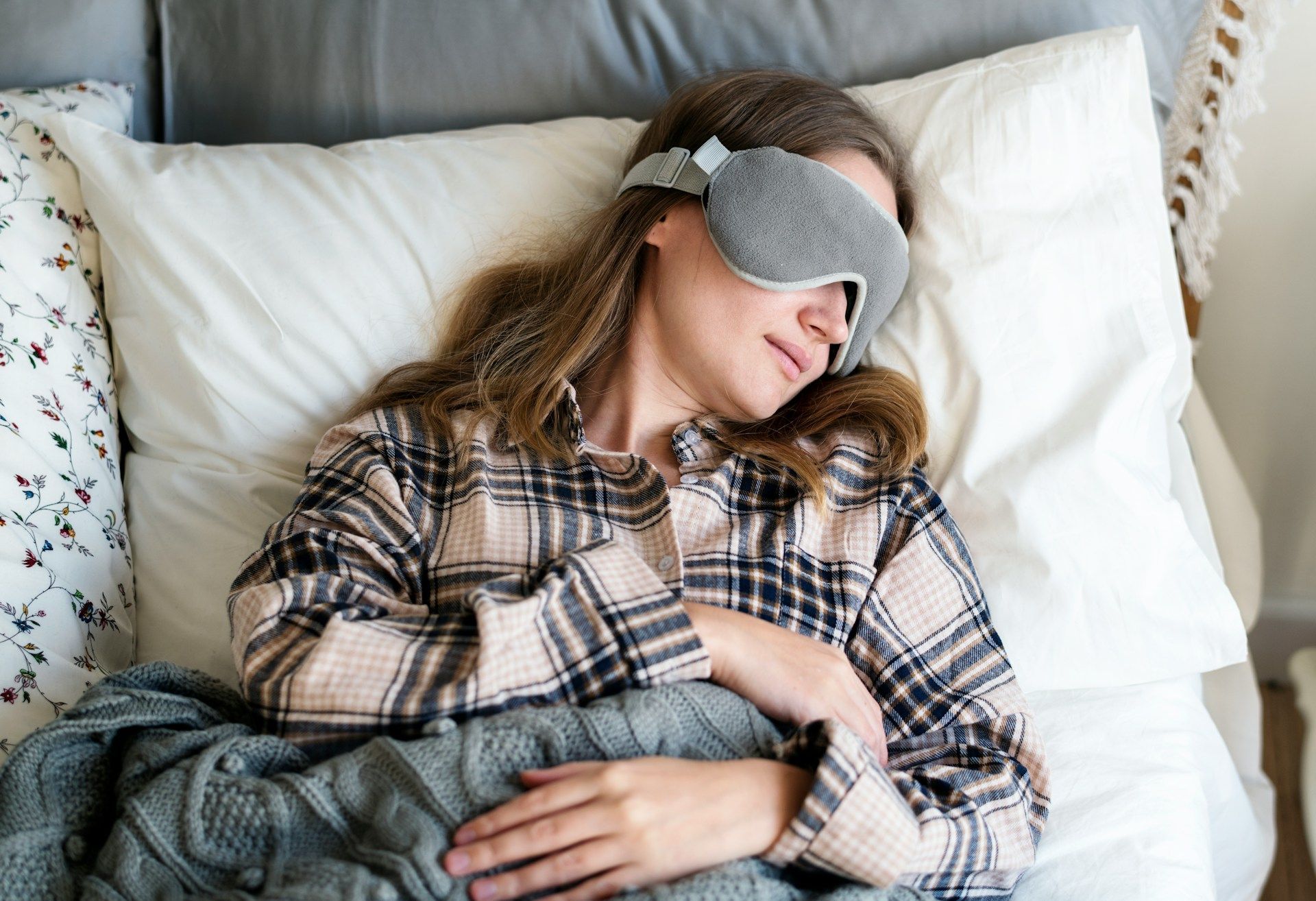Dr. Cameron Kuehne Talks About Snoring Solutions

Snoring can disrupt a good night’s sleep for you and those around you. Understanding why snoring happens is key to finding effective solutions. Dr. Cameron Kuehne, a professional in sleep disorders, offers valuable insights into addressing this common issue.
At The Center for Sleep Apnea and TMJ in Meridian, Dr. Kuehne focuses on helping individuals find relief from snoring with practical advice. Simple changes in daily habits and environment can make a difference.
With Dr. Kuehne's guidance, achieving quieter, restorative nights is possible, promoting better health and well-being.
Understanding the Causes of Snoring
Snoring happens when airflow is blocked during sleep, causing vibrations in the throat. Dr. Cameron Kuehne explains that different factors can lead to snoring. It's important to know these causes, as this can help find the right solution.
One common cause of snoring is nasal congestion. When your nose is blocked due to allergies or a cold, it can make you snore. Some people snore because their throat muscles are too relaxed during sleep. This relaxation can occur due to alcohol consumption before bedtime.
Another reason could be the position you sleep in. People who sleep on their backs often snore more because the tongue can fall back and block the throat. Being overweight is also a factor since extra tissue around the neck can squeeze the airway, making snoring more likely.
Additionally, aging plays a role. As people get older, their throat muscles can weaken, increasing the chances of snoring. Identifying the specific cause of snoring in each person allows for better targeted solutions.
Dr. Kuehne emphasizes understanding the root cause to manage snoring effectively, helping individuals and their families enjoy quieter, more restful nights.
Dr. Cameron Kuehne’s Recommended Lifestyle Adjustments
Dr. Cameron Kuehne advises several lifestyle changes that can help reduce snoring and improve sleep. These simple adjustments can make a big difference in tackling snoring problems.
1. Change Sleep Positions: Try sleeping on your side. This position prevents the tongue and soft tissues from collapsing to the back of the throat, reducing snoring. You can use a body pillow to maintain this position.
2. Avoid Alcohol Before Bed: Alcohol relaxes the throat muscles, increasing the likelihood of snoring. Dr. Kuehne suggests avoiding alcohol at least a few hours before bedtime.
3. Maintain a Healthy Weight: Extra weight can add pressure on your airways. Engaging in regular physical activity and following a balanced diet can help keep your throat clear and reduce snoring.
4. Establish a Routine: Stick to a consistent sleep schedule by going to bed and waking up at the same time every day. This regularity helps regulate your sleep cycle and can reduce snoring.
5. Stay Hydrated: Drink plenty of water throughout the day. Dehydration can cause nose and throat secretions to thicken, leading to snoring.
Dr. Kuehne emphasizes these lifestyle adjustments as effective, proactive steps in minimizing snoring. Making these changes can lead to quieter nights and more restful sleep for both you and your loved ones.
Exploring Non-Medical Remedies for Snoring
There are several non-medical remedies to help reduce snoring and improve sleep quality. Dr. Cameron Kuehne suggests practical approaches that may assist in lowering the noise during sleep and enhancing overall health.
1. Change Sleep Positions: Sleeping on your back can make snoring worse because the tongue can fall backward and block the airway. Try sleeping on your side to help keep the airway open.
2. Use Nasal Strips: These adhesive strips can be placed on the outside of your nose to help widen nasal passages, making breathing easier and reducing snoring.
3. Steam Inhalation: Taking a hot shower before bed can help clear nasal passages. The steam moistens the airways, which can reduce snoring caused by congestion.
4. Hydration: Drinking plenty of water throughout the day can help keep mucous membranes in the throat and nose moist, reducing snoring.
5. Elevate Your Head: Elevating the head of your bed by a few inches can encourage your tongue and jaw to move forward, opening up your airway.
6. Use a Humidifier: Keeping the air moist with a humidifier can prevent dry air from irritating your throat and nasal passages.
By exploring these remedies, individuals can try various methods at home to manage their snoring issues. Dr. Kuehne advises trying these solutions consistently to determine what works best for individual cases.
When to Consult Dr. Cameron Kuehne for Professional Advice
There are times when non-medical remedies might not be enough to alleviate snoring. Knowing when to seek expert advice is crucial for finding effective help. Dr. Cameron Kuehne provides insights into when it is time to consult a professional for snoring concerns.
- Loud and Disruptive Snoring: If snoring blocks the sleep of your family members or roommates, professional consultation might be necessary.
- Breathing Pauses During Sleep: Noticing gasping or pauses in breathing during sleep could be an indication that it is time to consult Dr. Kuehne.
- Excessive Daytime Sleepiness: Feeling unusually tired throughout the day, despite long hours of sleep, can warrant a professional evaluation.
- Persistent Morning Headaches: Regular headaches upon waking, possibly due to poor sleep quality, might need a professional look.
- Lifestyle Changes Have No Effect: If making changes to sleep position, hydration, or using nasal strips haven’t improved the condition, consulting a specialist is advisable.
Seeking help from Dr. Cameron Kuehne at The Center for Sleep Apnea and TMJ provides a pathway to understanding the underlying causes of snoring and exploring more tailored solutions.
Conclusion
Snoring can disrupt not only sleep but also the overall quality of life. Dr. Cameron Kuehne’s insights into understanding and managing snoring can help alleviate this common issue. Exploring non-medical remedies like changing sleep positions or using nasal strips offers practical, first-step solutions that individuals can try at home.
However, knowing when to seek professional advice is equally important. Ensuring that persistent symptoms are addressed with expert input can prevent more serious health implications and improve sleep quality for you and those around you.
For those dealing with snoring or sleep-related challenges, consulting with Dr. Cameron Kuehne at The Center for Sleep Apnea and TMJ can offer guidance tailored to your specific needs.
Don’t let snoring disrupt your sleep any longer; connect with the experienced team today at our sleep apnea clinic in Boise to find out how they can help you and enjoy peaceful nights once again!
Contact Us
The Center for Sleep Apnea & TMJ
1718 S Millennium Way, Meridian, ID 83642
Phone: (208) 376-3600
Fax: (208) 376-3616
All Rights Reserved
The Center for Sleep Apnea & TMJ
All Rights Reserved - Accessibility Statement
The Center for Sleep Apnea & TMJ










